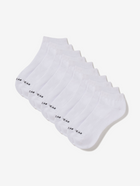In a world moving faster than ever, slowing down to make intentional choices—for our bodies, for the planet, and for future generations—feels radical. But that’s exactly what Allwear and Heart & Soil are doing.
They’re not just brands. They’re movements.
Two Missions, One Root
At first glance, a clothing company and a supplement/nutrition brand may seem worlds apart. But take a closer look, and you’ll see something powerful: both Allwear and Heart & Soil are built on regenerative principles.
-
Heart & Soil is reintroducing us to ancestral eating through grass-fed organ supplements and education. Their goal? To reverse chronic illness by returning to nutrient-rich, real food—particularly organ meats sourced from regeneratively raised animals.
-
Allwear is disrupting fast fashion by producing high-quality, long-lasting non-toxic apparel made for movement and recovery. Their mission? To reduce waste, promote durability, and make everyday wear that fits a long-term lifestyle.
At their core, both companies are helping people reconnect to nature, reclaim their health, and consume consciously.
Economic Impact with Integrity
Both brands are proving that ethics and economics can co-exist.
Heart & Soil sources ingredients from regenerative farms in the U.S.—this supports rural economies, preserves land, and drives demand for ethical agriculture. They're not just feeding people—they’re reviving local supply chains.
Allwear, similarly, leans into ethical production and a wear-more, waste-less mindset. By encouraging intentional consumption, they reduce the strain on landfills, overproduction, and exploitative labor practices often tied to fast fashion.
When customers buy from these brands, they’re supporting a ripple effect of integrity: farmers paid fairly, factories producing responsibly, ecosystems respected rather than depleted.
Environmental Stewardship Without Greenwashing
We’ve all seen brands slap a “green” label on their marketing. But Allwear and Heart & Soil walk the walk.
Heart & Soil supports regenerative agriculture, which actually improves soil health and sequesters carbon. It's not just sustainable—it's restorative. The land is left better than it was before. This method also enhances biodiversity and reduces water usage.
Allwear’s focus on versatility and longevity means fewer items in your closet—and fewer textiles in our oceans and landfills. The less you need to replace, the less you consume. Simple math, big impact.
The Bigger Picture: A Regenerative Economy
Together, these brands are sketching the outline of a regenerative economy—one that values health, durability, and harmony with nature. It’s not just about selling products. It’s about building culture.
They’re asking: What would the world look like if we wore clothes that lasted, ate foods that healed, and supported brands that gave more than they took?
And that’s a future we can all stand behind.



